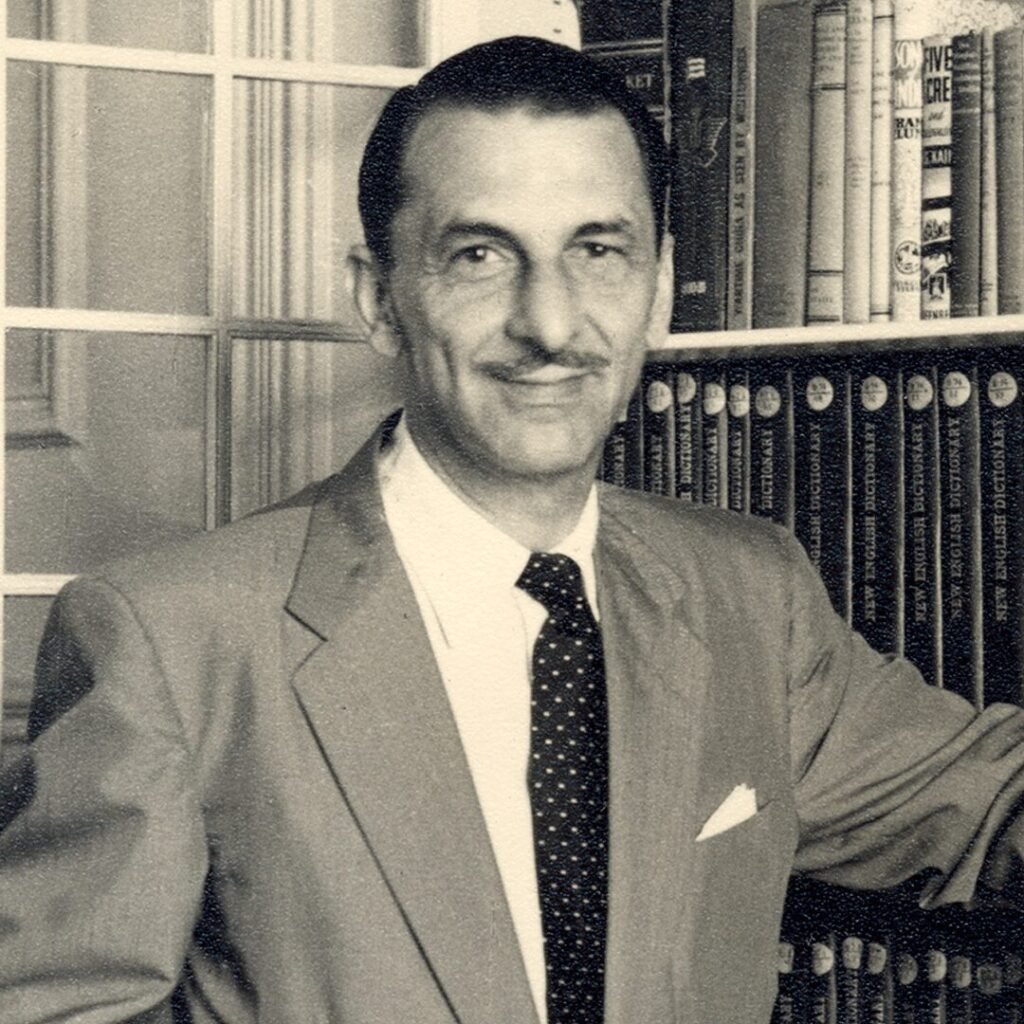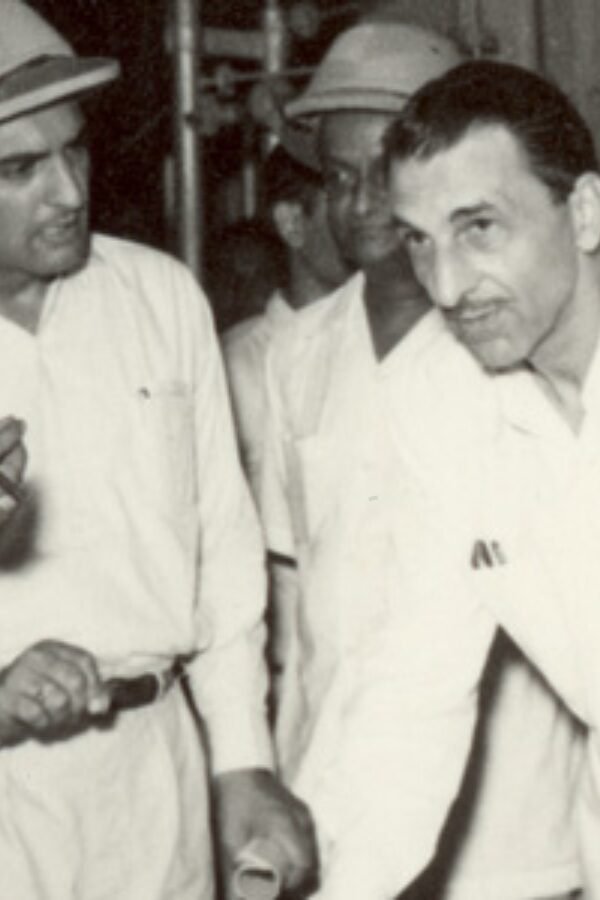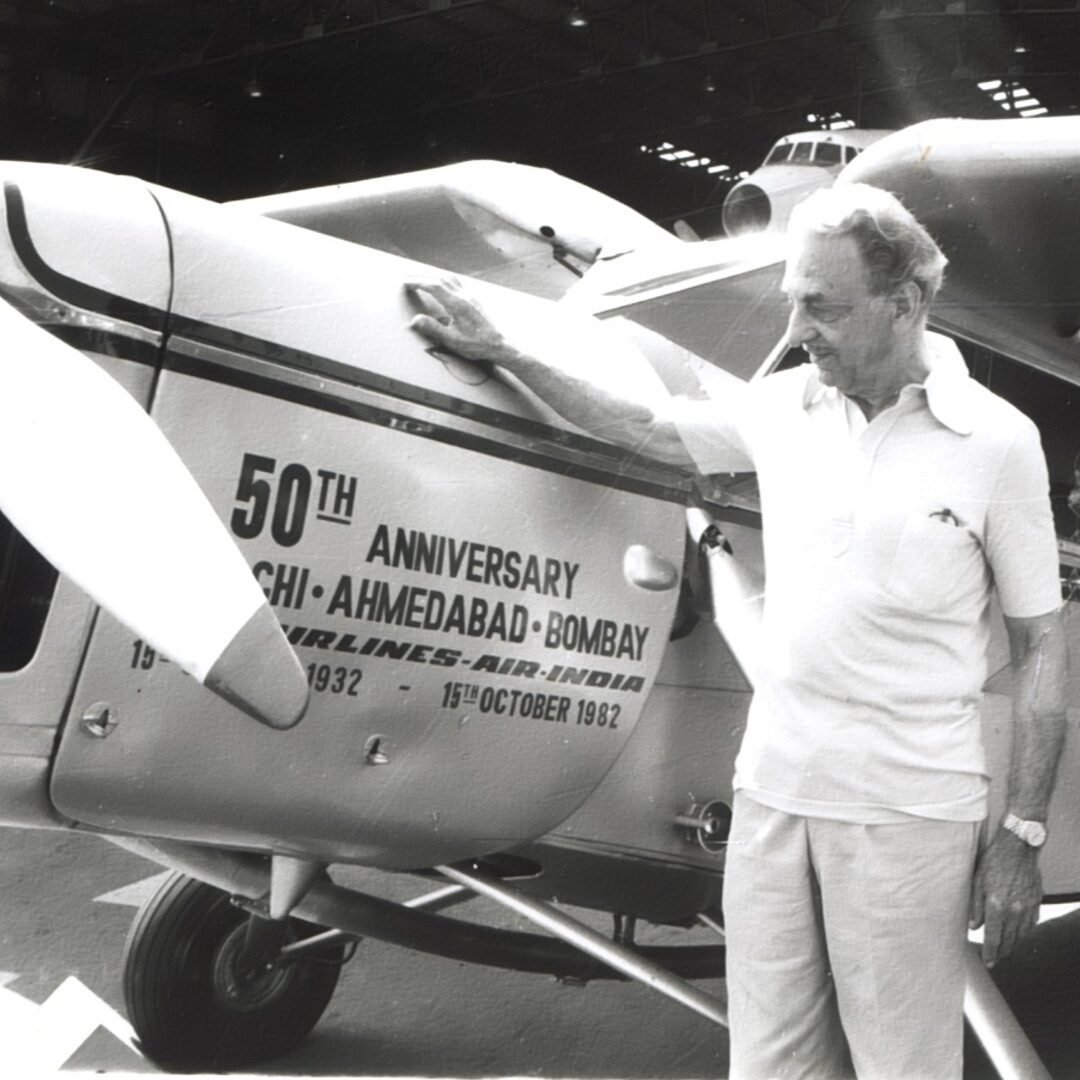JRD Tata: A Legacy Soaring Above the Rest

In an era when the world was just waking up to the possibilities of the industrial revolution, one man’s vision soared above the rest, propelling India into a new age of modernity and progress. Jehangir Ratanji Dadabhoy Tata, fondly known as J.R.D. Tata was not just an industrialist; he was a pioneer, a dreamer, and a trailblazer whose legacy still reverberates through the corridors of Indian industry.
Born in the cultural hub of Paris on July 29, 1904, J.R.D. Tata, fondly known as Jeh, wasn’t just an industrialist; he was a pioneer, dreamer, and trailblazer. His legacy echoes through India’s industrial corridors, showcasing the power of vision and resilience.As a member of the esteemed Tata family, Jeh inherited more than a name; he embraced a legacy of integrity and innovation. His impact extended beyond business, touching the very fabric of society. From pioneering ventures in aviation to championing corporate social responsibility, Jeh was a Renaissance man ahead of his time.
"
In this article, join us as we take a journey through the life and legacy of J.R.D. Tata, exploring how his dreams soared and his unwavering leadership reshaped India’s industrial landscape, inspiring generations along the way.
The J.R.D. Tata Revolution
J.R.D. Tata joined the Tata Group in 1925 at the age of 21. He was appointed to the board of Tata Sons, the holding company of the Tata Group, by his uncle, Dorabji Tata. This marked the beginning of a remarkable journey that would see J.R.D. transforming the Tata Group into one of India’s most respected and diversified Corporations.
J.R.D. Tata took over as chairman of Tata Sons in 1938, the Tata Group consisted of 14 enterprises. Over the next five decades, under his leadership, the group expanded to over 100 companies, covering diverse sectors such as steel, automobiles, energy, chemicals, hospitality, and information technology.
In this article, we reflect on the crucial sectors, businesses and Industries which were built because of JRD Tata’s visionary leadership which helped Tata’s rise to global success.

1. A Leap Into Aviation
J.R.D.’s passion for aviation was more than a hobby; it was a vision. In 1932, he soared into the history books by founding Tata Airlines, India’s first commercial airline. This daring venture not only revolutionized air travel in India but also showcased J.R.D.’s fearless spirit and pioneering mindset.
Tata Airlines eventually took to the skies as Air India, a symbol of national pride and innovation, and look at its fate, now Tata owns Air India.
2. The Birth of Tata Motors
In 1945, Tata Motors was born, initially producing locomotives. Under J.R.D. With visionary leadership, it evolved into an automotive giant, creating everything from commercial trucks to luxury cars, including iconic brands Jaguar and Land Rover.
Originally known as Tata Engineering and Locomotive Co. Ltd. (TELCO). The company started with the production of locomotives and engineering products but soon ventured into the automotive sector. Today, Tata Motors is one of India’s largest automobile manufacturers.

3. Tata Steel’s Rise to Global Success
Under J.R.D. Tata’s leadership, Tata Steel got established and expanded its domestic operations . The landmark acquisition of the Anglo-Dutch steelmaker Corus in 2007 was a game-changer, catapulting Tata Steel into the league of the world’s top steel producers. This strategic move not only enhanced Tata Steel’s production capacity but also its technological prowess and market reach.
4. Tata Chemicals
Shaping Tomorrow's World with Green Chemistry
Under the visionary leadership of J.R.D. Tata, Tata Chemicals Ltd. was established in 1939 in Mithapur, Gujarat. The company began as a small-scale manufacturer of basic chemicals but quickly distinguished itself through its commitment to quality, innovation, and sustainable practices. He was a firm believer in the power of research and innovation.
Under his leadership, Tata Chemicals invested heavily in R&D to develop new products such as salts to Nutrient blends for food fortification to Crop protection products to Lithium-ion battery chemicals and to improve existing ones. This commitment to innovation resulted in the introduction of high-quality products that met the evolving needs of industries and consumers alike.
J.R.D.’s vision ensured that Tata Chemicals stayed ahead of the curve, continually adapting to technological advancements and market demands.
5. TIFR
The Building Blocks of Nature
The Tata Institute of Fundamental Research (TIFR) stands as a testament to J.R.D. Tata’s unwavering commitment to scientific progress and education. Established in 1945 with J.R.D.’s support, TIFR quickly became a hub for advanced research in physics, mathematics, biology, and computer science. His strategic vision and belief in fundamental research laid the foundation for TIFR’s global reputation as a center of excellence.
Today, TIFR continues to uphold J.R.D. Tata’s legacy, driving scientific innovation and contributing to the advancement of knowledge worldwide.
6. His Commitment to Social Responsibility
Has created high standards on how to do good business
J.R.D. Tata was not just a business magnate; he was also a committed philanthropist and a champion of social causes. He believed that the true measure of a company’s success was its contribution to society. Under his leadership, the Tata Group pioneered several employee welfare initiatives, including eight-hour workdays, maternity leave, and profit-sharing plans.
JRD Tata’s dedication to improving the quality of life in India was evident in the establishment of various educational and research institutions, including the Tata Institute of Social Sciences (TISS) and the National Centre for the Performing Arts (NCPA). He also played a crucial role in the development of Jamshedpur, the city founded by Jamsetji Tata, transforming it into a model industrial township.


TATA ‘s Leadership in today's world
J.R.D. Tata was like the ultimate architect, sketching out the blueprint for the Tata Group’s incredible journey from small beginnings to global dominance. His focus on being inventive, delivering top-notch quality, and giving back to society paved the way for the group’s growth across many different industries.
Even today, the Tata Group is a big name in sectors automotive, steel, information technology, telecommunications, hospitality, and consumer goods. From Tata Motors to Tata Steel, Tata’s are on the global map today and added some dazzling luster to their brand collection that Tata owns today.
Then there’s Tata Consultancy Services (TCS), the IT whiz-kid of the group. They’re the superheroes of software, consulting, and outsourcing. Their smart solutions and digital makeover projects have made them the go-to for businesses everywhere in the world economy.
Moreover, Tata Group’s commitment to sustainability and social responsibility is evident across its operations. Initiatives such as Tata Power’s focus on renewable energy, Tata Chemicals’ sustainable manufacturing practices, and Tata Trusts’ philanthropic efforts underscore the group’s dedication to environmental stewardship and community development.
Today, Tata has excelled across sectors, earning widespread accolades!
JRD Tata was awarded the Bharat Ratna, India’s highest civilian award, in 1992. He was also honored with the French Legion of Honour and the United Nations Population Award, among others.
J.R.D. Tata passed away on November 29, 1993, but his legacy continues to inspire generations of entrepreneurs and leaders.
Even today, The Tata Group remains a symbol of excellence, integrity, and social responsibility, reflecting the values that J.R.D. championed throughout his life.
And lead by an example on how to do good business for overall development and improving the dignity of individuals.
Final Thoughts
In a nutshell
J.R.D. Tata’s legacy is a tapestry woven with innovation, compassion, and relentless pursuit of excellence. His indomitable spirit and visionary leadership continue to inspire generations, reminding us that greatness is not merely achieved through wealth or power, but through the profound impact we leave on the world around us.
As we reflect on his remarkable journey, may we be emboldened to dream boldly, act with integrity, and strive for a future where every endeavor is infused with the ethos of Tata – a future where progress is measured not only by financial gain but by the upliftment of humanity.
As we bid adieu to the remarkable journey of J.R.D. Tata, his story whispers to us across the winds of time, a tale of daring dreams and compassionate deeds. His legacy, like a soaring eagle against the azure canvas of the sky, reminds us that greatness is not bound by earthly constraints but is nurtured by boundless vision and a heart that beats for the betterment of all.
In the symphony of progress, his melody resonates, urging us to reach for the stars, not just for ourselves but for the collective harmony of humanity.



